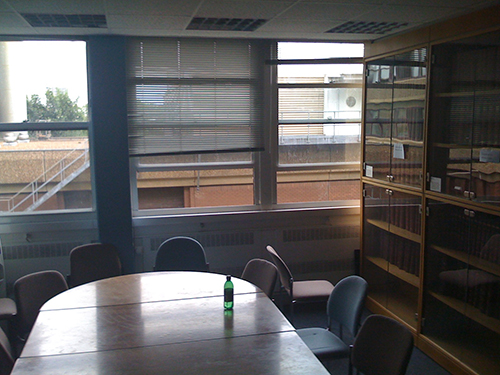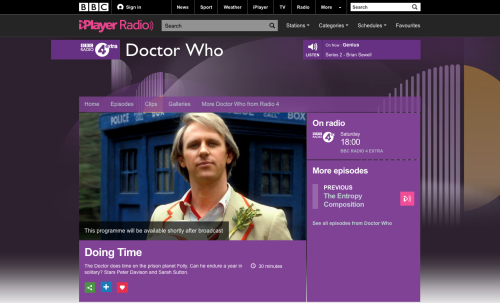Finally, I’ve got a name for it. Listen, last night I did my 120th speaking gig of the year and this one had something in common with maybe 10 of the others. It’s not a good thing, not for me, but normally it only happens in what turn out to be the very best speaking gigs I do. That’s not the case now: last night’s wasn’t my very best. It was a Writers’ Guild event to do with supporting the Birmingham Writer in Residence job at the Birmingham Rep and the BBC. Guests were great, audience was perfect and I honestly don’t think anyone left that room feeling disappointed. Yet I wasn’t good enough. I’m thinking about this.
But quite shortly into it, I hit this thing I have today decided to call the Ginnunga-gap. I just make up syllables, really, and throw in a hyphen. if you don’t know the term – and I had to look it up despite knowing it for centuries – let me tell you in a moment. First, what I mean by it.
Whatever the subject you’re talking about, whatever the audience and whatever the format of the event, you have a certain time to fill and part of the job is filling that well. In these 10 or so cases, there has come a moment when I knew I couldn’t fill the time.
It’s usually about two thirds of the way through and we’ve all been working rather quickly, we’re through or nearly through all my material. The time from when it hits me to the end of the event can be as much as three hours. It is a calamitous, lurching fear that damages your stomach.
Officially, the Ginnunga-gap is a gaping abyss, a yawning void, it is the primordial void in Norse mythology. (Wikipedia spells it as one word, Ginnungagap.) That’s not where I know it from. It’s taken me a long time to remember where and actually to recall exactly the term. I knew it was Something Something Gap. It’s also taken me the last hour of searching through iBooks and Kindle when the book I know it from was right there on the shelf above my Mac. In direct line of sight, in fact.
The book is a collected quartet of novels by James Blish that together are known as Cities in Flight. It’s a remarkable series that uses this Ginnunga-gap term to describe the period between the end of this entire universe and the start of the next. I read it as a teenager, I think, and every many years I happen across it again and end up re-reading it. It’s the novel with my favourite technical term: the spindizzy. Love it. Just the word. I’m not fussed what it means.
I’m less keen on my Ginnunga-gap and while I do recommend the novels, I recommend your being better prepared than I sometimes am. I promise you that I’m prepared, sometimes far too much, and I admit that last night my thumb caused part of the problem. Instead of a nice OmniOutliner document with all my notes for the event, I looked down at my iPad and found I was reading the running order of a radio podcast I’d produced earlier in the week. “Well,” I said to the audience. “Any questions for the panel?”
My abilities and performance aside, last night I’d misjudged the amount of time we’d need for what we were doing and that was partly because I didn’t get exactly the audience I’d anticipated. Everyone who came was serious and there to find out things, but I’d mentally budgeted time for more people and the inevitable number of long-winded questions you get from a proportion of folk. Plus there are various issues around this topic that I’ve been asked about privately and would have to deal with but didn’t come up on the night. So I’m okay with that, that’s a natural development of an event in progress.
But this time I got the Ginnunga-gap about seven minutes into the 90.
Nine out of these last ten events with this stomach-tearing gap worked out brilliantly, in my opinion, and there is definitely something about working under pressure. Also about having a mental grab-bag of tools and topics plus a bucketful of anecdotes. None of that helped last night because my job was not really be there, to not be in the way, to not be the point of the event. Instead my job was to solder the panel and the audience together and make sure the former got to say what they needed and the latter got to hear what they must. I actually think I handled the questions well, choosing the next person, letting others know I’d seen them so they could put their hands down, then correctly going to those people, calling many out by name although most I hadn’t met before. All the usual stuff.
I’ve just realised that this particular usual stuff is when I’m working with the audience or I’m working with the panel. When I’m on my own – let me go from Norse mythology to Strictly Come Dancing – I’m out of hold. And there’s too much gapping.
Next gig: tomorrow.



